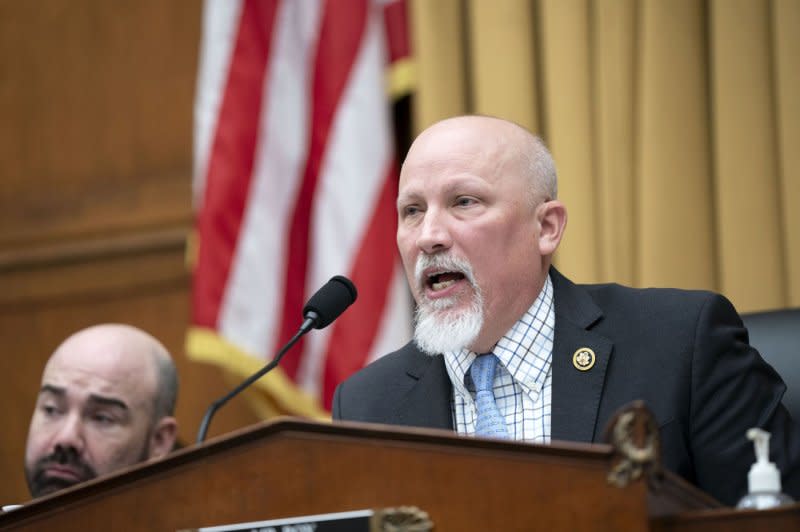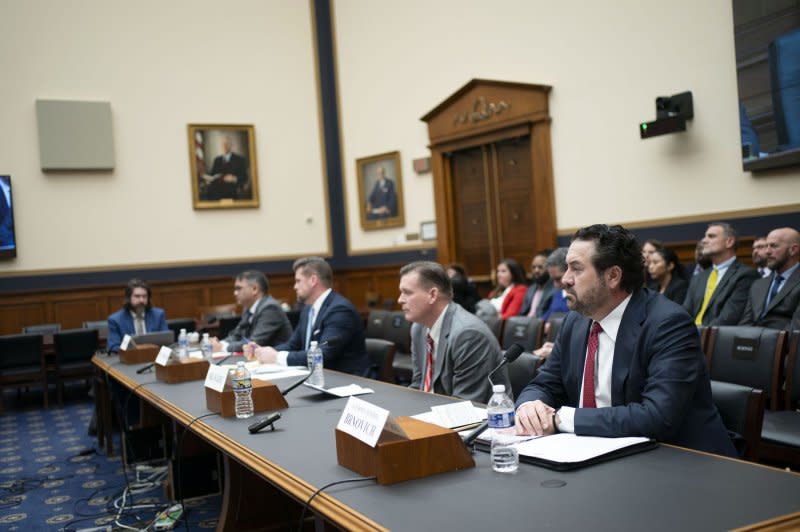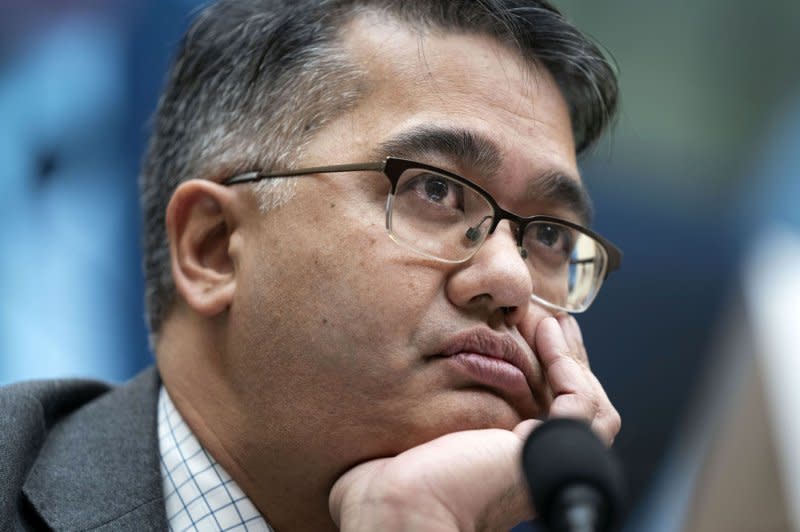Republican Rep. Chip Roy blasts 'invasion at southern border' during House hearing

Jan. 30 (UPI) -- Rep. Chip Roy blasted the "invasion at the southern border" and urged Texas, during a House Judiciary subcommittee hearing Tuesday, to ignore last week's Supreme Court order to remove barbed wire along the U.S.-Mexico border.
"This is very clearly an invasion. It is a purposeful one, and it's inflicting dangerous consequences on our country and the people of Texas," Roy, R-Texas, told the House Judiciary Subcommittee on the Constitution and Limited Government before accusing President Joe Biden of "failing to fulfill his duty to defend our country, to defend the borders of the United States, as required by the Constitution."
Omar Jadwat, director of the Immigrant's Rights Project at the American Civil Liberties Union, countered during his testimony that "150 years of Supreme Court precedent says that states do not have the authority to take immigration matters into their own hands."
"What amount of death or destruction among the people of Texas or any other state is sufficient to say that the state should take action?" Roy asked the panel.
Last week, the U.S. Supreme Court ruled that the Biden administration can remove razor wire from the U.S. southern border, which Texas Gov. Greg Abbott ordered erected to prevent migrants from entering the state. Abbott has also brought in the Texas National Guard, deployed water barrier buoys along the Rio Grande River and bussed migrants from Texas to Democrat-led cities.

During Tuesday's hearing, Roy pressed witnesses on whether state governors should take action to defend their borders, while citing Article 1 Section 10 of the Constitution, which states that no state may engage in war "unless actually invaded, or in such imminent danger as will not admit of delay."
Former Arizona Attorney General Mark Brnovich pointed to the "extensive well-documented and persistent threat" of drug cartels as reason to defend the border, as he questioned the priorities of the Biden administration.

"Why was President Biden so quick to tear down the border fence in Texas, but so slow to shoot down a Chinese spy balloon?" Brnovich asked.
"Why was President Biden so quick to tear down the border fence in Texas, but so slow to shoot down a Chinese spy balloon?"@GeneralBrnovich raises an important question on the priorities of the Biden administration. pic.twitter.com/ymeLRnZoe4— House Judiciary GOP (@JudiciaryGOP) January 30, 2024
Christopher Hajec, director of litigation at the Immigration Reform Law Institute, testified that he believes the term "invasion" applies to the southern border, as he accused the Biden administration of "attempting to accomplish the opposite of the purpose of federal immigration law."

"When you think of the term 'invasion,' it paints the so-called invaders as violent, and even more so, it authorizes violence against those people," Jadwat countered.

